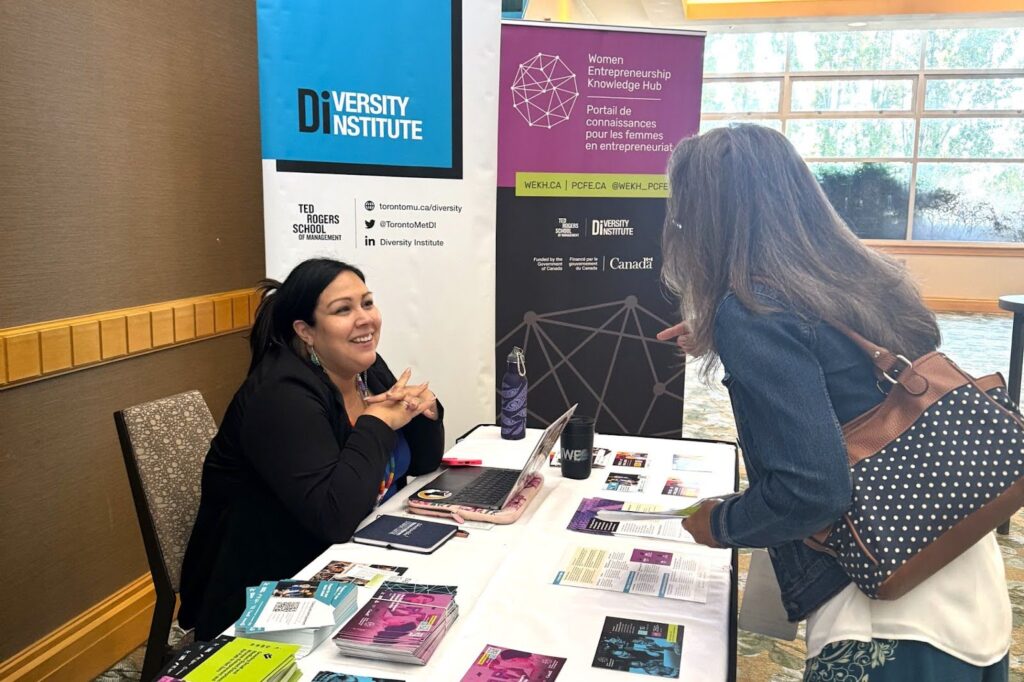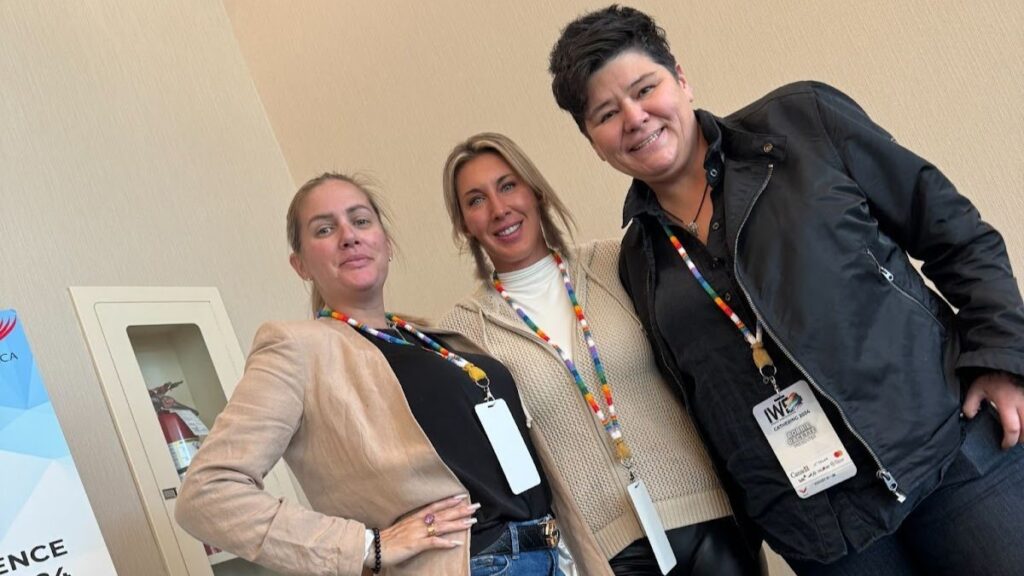NACCA Event Recap

The Women Entrepreneurship Knowledge Hub (WEKH) sponsored the National Aboriginal Capital Corporations Association (NACCA) Indigenous Women Entrepreneur Conference in Vancouver from Aug 27 to 29, 2024, where over 100 attendees attended the inaugural Indigenous Women’s Entrepreneur Program (IWE) program’s national gathering. Shannon Pestun, senior financial advisor, delivered the keynote welcome address, accompanied by Deidre Dewar, a representative from WEKH Manitoba, to promote WEKH initiatives.
In 2019, NACCA launched its Indigenous Women Entrepreneur (IWE) initiative to increase the number of Indigenous women engaging in entrepreneurship and business development in Canada. This year, the conference, under the vision of NACCA board member Elaine Chambers, along with Magnolia Perron, program manager, women and youth at NACCA, focused on building connections and capability for Indigenous women entrepreneurs and the ecosystem that supports them. The Honourable Rechie Valdez, Minister of Small Business, delivered a video message communicating Canada’s support for Indigenous women entrepreneurs.
During her keynote welcome, Pestun highlighted the most recent WEKH’s State of Women’s Entrepreneurship (SOWE) in Canada 2024 report. She provided key findings related to Indigenous women entrepreneurs across Canada:
- 23% of Indigenous business owners are women, which is higher than the percentage of non-Indigenous business owners (19.5%).
- 10% of the Indigenous population are self-employed, compared with 15% of the non-Indigenous population.
- Moreover, only 9% of Indigenous women are self-employed, compared with 12% of non-Indigenous women.
- Self-employed Indigenous individuals are less likely to be incorporated compared to their non-Indigenous counterparts (29% vs. 39%). This rate is even lower for self-employed First Nations women living off reserve, at 19%.
As detailed by SOWE, access to financing is a top challenge identified by Indigenous women entrepreneurs. The lack of financing is compounded by a lack of savings, insufficient credit history, aversion to debt, strict eligibility criteria, difficulty navigating the lending process and challenges in understanding taxation, particularly on reserves. Compounding the challenges is that many Indigenous women entrepreneurs reside in First Nations, rural and remote communities that are geographically isolated from financial services, business support organizations, customer bases, suppliers and reliable transportation infrastructure.

Throughout the day Indigenous entrepreneurs from coast to coast to coast shared their entrepreneurial journeys. Indigenous entrepreneur keynotes were shared by the following. Some of them can be found in our See It. Be It. database:
- Jenn Harper, Cheekbone Beauty
- Bobbie Racette, Virtual Gurus
- Patrice Mousseau, Satya Organic Skin Care
- Victoria Labillois, National Indigenous Economic Development Board
- Chelsea Petitt, aaniin
- April Mitchell-Boudreau, Lofttan Jewelry
- Bernice Kuutuu Clarke, Kuutuu Cultural Consulting
In addition, attendees enjoyed workshops on finance, marketing, legal and more presented by the following:
- Helen Bobiwash
- Heather Barnhouse
- Carol Ann Budd
- Brett Colvin
- Leticia Spence
- Sara Wolfe
- Joella Hogan
- Ryan St. Germaine
- Barry Payne
- Elizabeth Collinson
The collaboration with NACCA leverages WEKH’s Indigenous Hub, Mikwam Makwa Ikwe and NACCA’s IWE program, in collaboration with Indigenous Services Canada and the Women Entrepreneurship Loan Fund on behalf of Innovation, Science and Economic Development Canada. The National Aboriginal Capital Corporations Association plays a pivotal role in fostering the growth and success of Indigenous women entrepreneurs through a variety of targeted programs and initiatives.
